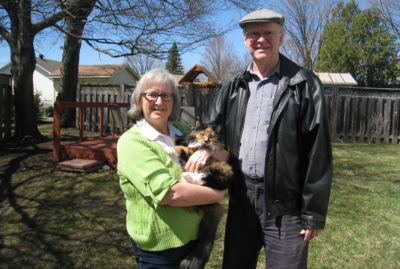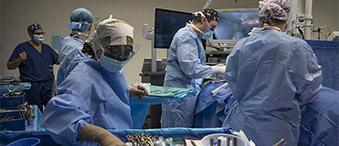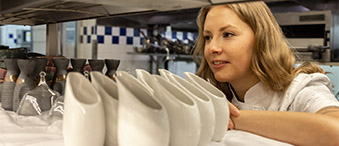After experiencing vision problems, severe headaches, and repeated transient ischemic attacks (TIA’s) –mini-strokes, John Fairchild was diagnosed with a tumour on his pituitary gland. With each TIA being potentially fatal or causing paralysis, and with surgery being high-risk, John began making detailed plans to help his wife carry on without him.
That was until September 2015, when minimally invasive brain surgery at The Ottawa Hospital saved his life.
In 2011, John had been told by a doctor in Edmonton that he had a tumour in his pituitary gland and the operation to remove it was too risky. The doctor advised him to wait several years until the procedure had been improved.
Five years later, John and his wife Suzanne had moved to Ottawa, and he was having regular TIA’s. During these mini strokes, his vision was reduced to seeing through a small hole, and his memory and speech were impaired. The 71-year-old was referred to see Neurosurgeon Dr. Fahad Alkherayf at The Ottawa Hospital. Dr. Alkherayf recommended John undergo the newly available minimally invasive brain surgery. With this technique, his tumour, which was benign, would be removed through his nostrils instead of the traditional more radical and risky surgery, which required opening up his skull.
The benefits of minimally invasive brain surgery
“It is a new field in neurosurgery,” said Dr. Alkherayf, who has advanced minimally invasive brain surgery techniques in recent years. “There are no incisions in the skull, no cut in the skin. Everything is done through the nose.”
This operation is safer with surgery time greatly reduced. It means patients not only spend less time in the operating room, but they go home sooner. They experience less complications and better recovery.

Vision and hope restored
“I believed there was some risk of being blind or dead after the operation, as it was so new,” said John. “I spent two months before the operation, training to carry on being blind. I taught my wife how to use the snow blower and handle the finances.
“When I opened my eyes in the recovery room, I could see a clock on the wall, and I could see the time! I wasn’t blind.”
— John Fairchild
The Ottawa Hospital is a North American leader in this procedure.
“We have been asked for consultations internationally,” said Dr. Fahad Alkherayf. “It’s a very exciting technique that has definitely improved patient care during these surgeries.”
A bright future
In the year since the operation, John has resumed his active life.
“Thanks to The Ottawa Hospital’s virtuoso surgery team, I am again now in vital good health – curling, skiing, golfing — with excellent vision and no headaches. I am extremely grateful for the extraordinary care I received in the hospital, and wonderful after-care.”
“I am so well now, you’d never know anything was ever wrong with me. I am very proud of the hospital and the medical team. You guys saved my life.”
— John Fairchild
The Ottawa Hospital is a leading academic health, research, and learning hospital proudly affiliated with the University of Ottawa.




